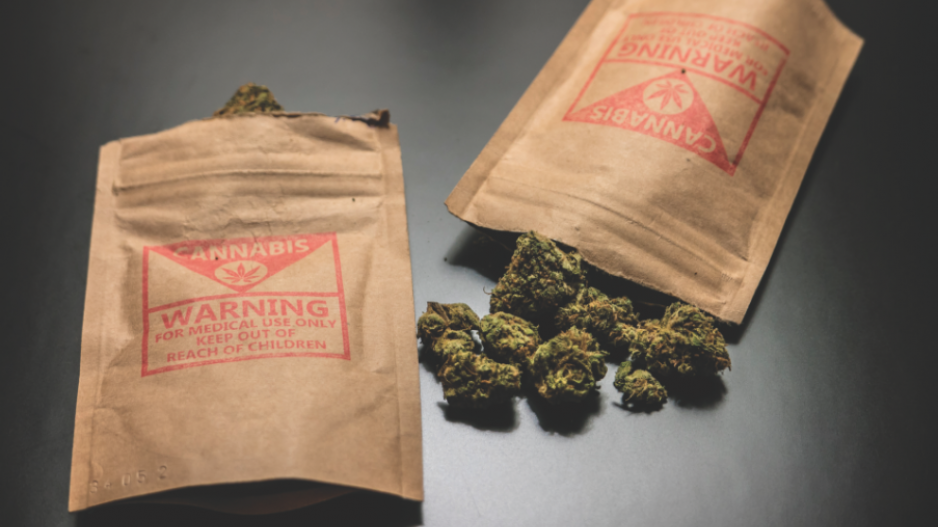The private sector in B.C. will get a slice of the marijuana pie, but whether British Columbians will be able to buy both Bud and bud from the same store is just one of the many questions yet to be answered by the B.C. government.
See also: Provinces to get 75% of marijuana tax revenues
Last week, the B.C. government announced a skeletal framework for how recreational marijuana will be distributed and sold once it becomes legal in July 2018.
“The decisions that we’re taking today are at a high level,” said B.C. Solicitor General Mike Farnworth. “There’s a lot of detailed work still yet to come.”
The government is setting the legal age for using and buying marijuana at 19 – the same as for buying and consuming alcohol.
As for distribution and sales, the government is going with a similar model used with liquor, beer and wine sales in the province.
The B.C. government will be solely in charge of distribution, through the BC Liquor Distribution Branch.
For retail, a mix of government and private-sector stores will sell marijuana. What’s unclear is whether private sales will be exclusively through pharmacies or liquor stores or through specialty cannabis stores only, or through some combination of the three.
“We are still looking at the issue of co-location as to how cannabis in a public or private retail store will be sold,” Farnworth said.
There are already more than 100 illegal marijuana dispensaries in Vancouver, and about 40 in Victoria.
Both municipalities have been trying to regulate the burgeoning pot sector through licensing; about 20 shops in Vancouver have successfully been licensed by the city.
They could all disappear, if the B.C. government decides to limit marijuana sales to liquor stores or pharmacies, or otherwise freeze out those dispensaries that have been operating illegally.
“There is a distaste, I think, in giving these licences to people who are breaking the law,” said Tony Wilson, a lawyer at Boughton Law Corp.
But Wilson said those operators who have at least tried to comply with municipal regulations should be given a chance to go legit.
“One would think they were trying, as best as they could, to comply with whatever laws that there were,” he said.
Farnworth said his government will decide in late January or early February how the retail model will work.
Between then and July 2018, Farnworth said, up to 18 legislative amendments or new pieces of legislation will have to be introduced and passed.
As for pot producers in B.C., it has been suggested that the B.C. government could license smaller growers to supply the government with marijuana for distribution.
Without the province doing its own licensing, there will be a shortage of legal marijuana, because there haven’t been enough federal production licences issued, said Dana Larsen, a director for the Vancouver Dispensary Society, which operates two medical marijuana dispensaries, neither of which are licensed by the city.
“If the province could give out grow licences, that’s a pathway for dispensaries, and our current suppliers could then be legitimized,” he said.
Asked if the province was contemplating its own cannabis producer licensing scheme, Farnworth said: “Nope. And the federal government has been very clear that they are responsible for the licensing of production.”
He added, however, that he believes there is a need to allow for small-scale production, to let growers who operate illegally become legitimized.
“That is something that relates to B.C. and that is something we would like to see here in British Columbia,” he said, adding his government is working with the federal government on that idea.
“But British Columbia is not planning its own licensing of production systems because the feds have made it clear that they’re engaged in that,” Farnworth added.
The Union of British Columbia Municipalities (UBCM), which was consulted through a joint cannabis consultation panel, has lobbied against co-location, pushing for cannabis to be sold through shops that sell only marijuana and cannabis products.
“We do not want to see pot sold in liquor stores,” said Vancouver Coun. Kerry Jang, who co-chaired the UBCM panel.
Should the government heed the UBCM, that might mean at least some of the more compliant marijuana dispensaries that have received municipal licences might have a shot at becoming legitimized under the new laws.
“What we are saying to government, under the liquor distribution model, is that now the government of British Columbia would license those stand-alone, privately owned pot shops,” Jang said.
“This is good for municipalities, if the government does it, because now the burden of all that work and cost that we’re now doing would fall to the provincial government.”
Some municipalities, like Richmond, have made it clear they don’t want private cannabis shops. In those cases, Jang said, it’s possible that government retail outlets would open in those municipalities.
As for taxation, the federal government announced December 11 that provinces will receive 75% of tax revenue from sales taxes on cannabis.




